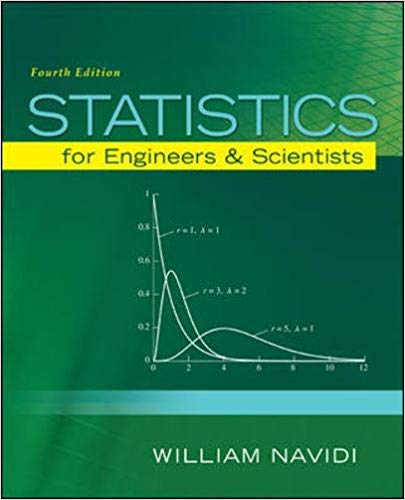A physicist wants to estimate the rate of emissions of alpha particles from a certain source. He
Question:
A physicist wants to estimate the rate of emissions of alpha particles from a certain source. He makes two counts. First, he measures the background rate by counting the number of particles in 100 seconds in the absence of the source. He counts 36 background emissions. Then, with the source present, he counts 324 emissions in 100 seconds. This represents the sum of source emissions plus background emissions.
a. Estimate the background rate, in emissions per second, and find the uncertainty in the estimate.
b. Estimate the sum of the source plus background rate, in emissions per second, and find the uncertainty in the estimate.
c. Estimate the rate of source emissions in particles per second, and find the uncertainty in the estimated. Which will provide the smaller uncertainty in estimating the rate of emissions from the source:
(1) Counting the background only for 150 seconds and the background plus the source for 150 seconds, or
(2) Counting the background for 100 seconds and the source plus the background for 200 seconds? Compute the uncertainty in each case.
e. Is it possible to reduce the uncertainty to 0.03 particles per second if the background rate is measured for only 100 seconds? If so, for how long must the source plus background be measured? If not, explain why not.
Step by Step Answer:






